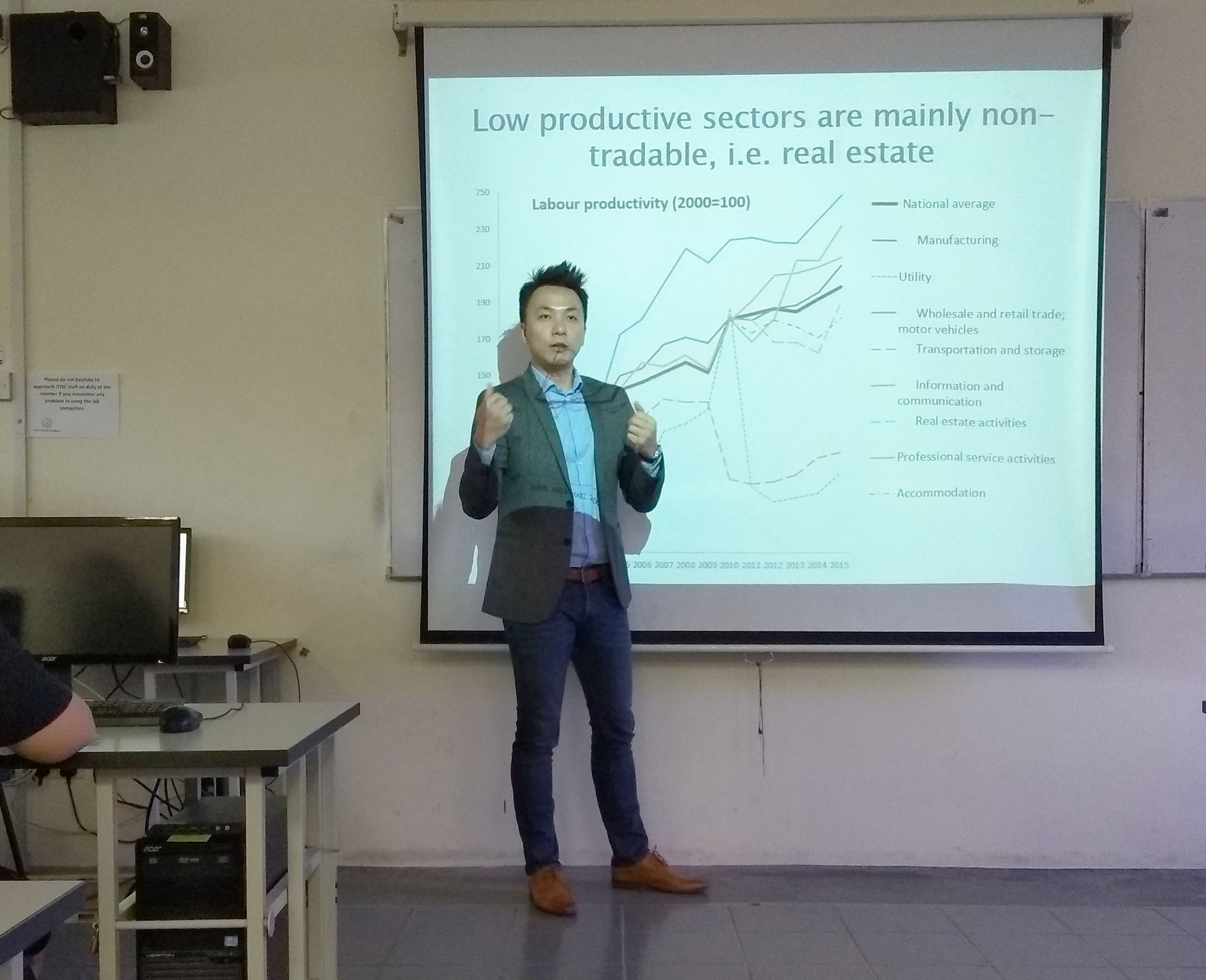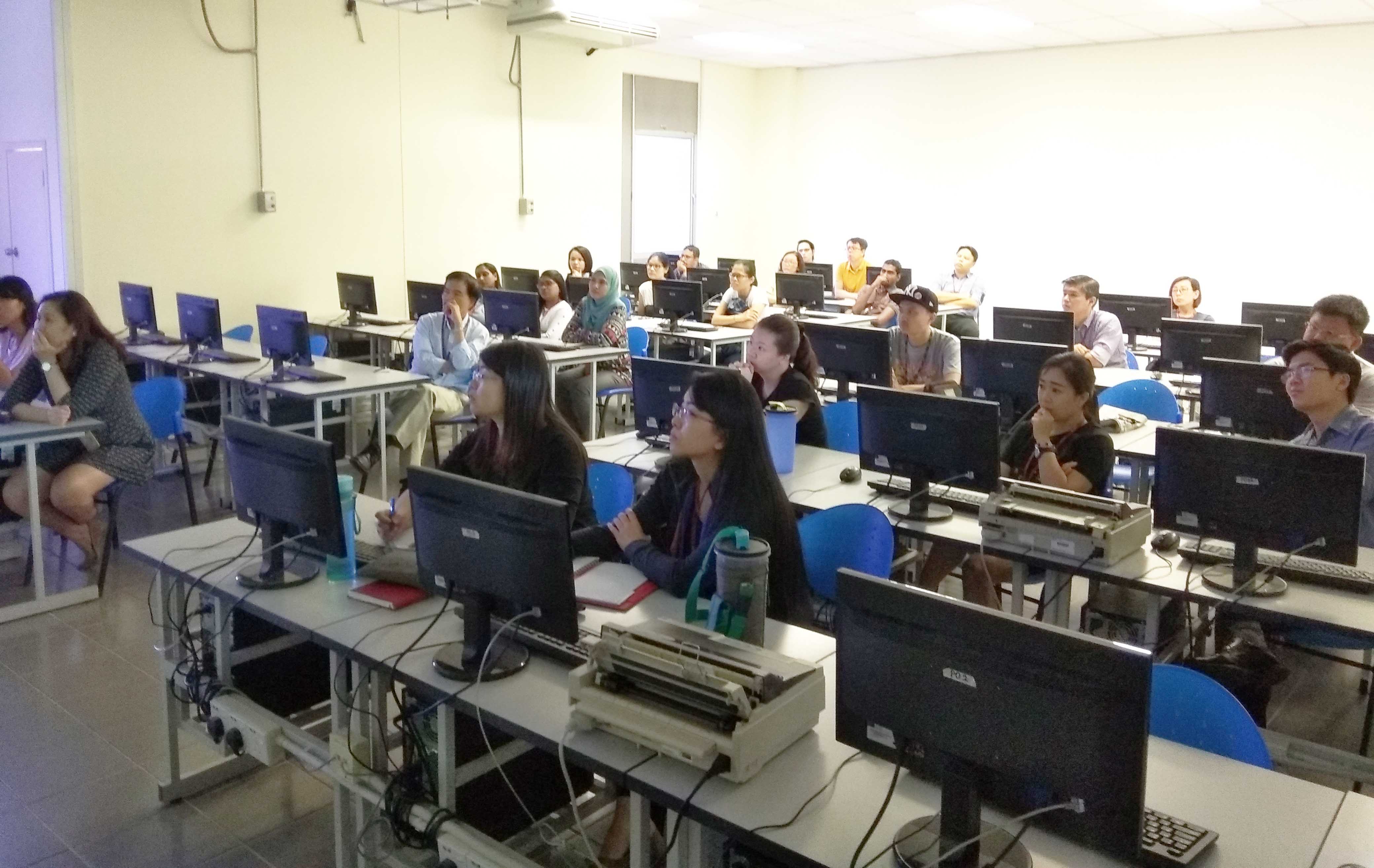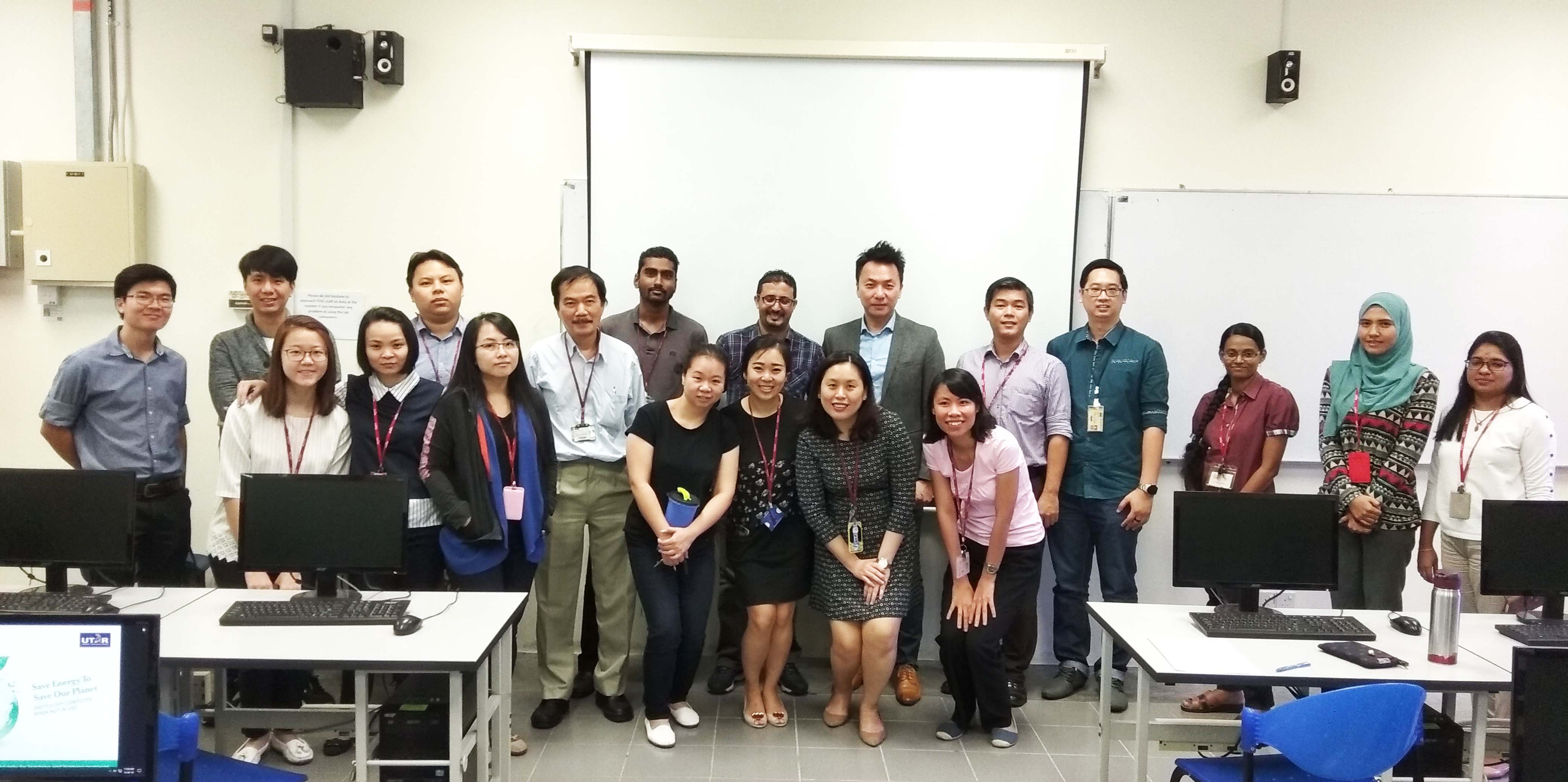
The Centre for Economic Studies (CES) under the Faculty of Business and Finance (FBF) organised a research talk titled “Why It Doesn't Feel Like a 6.2% Growth Rate?" on 19 April 2018 at Kampar Campus.
The talk was delivered by FBF Department of Economics Assoc Prof Dr Wong Chin-Yoong. Present at the talk were Chairperson of CES Foo Chuan Chew and FBF academics. The talk aimed to highlight three self-reinforcing issues, namely low productivity, weak Ringgit Malaysia and the increased debt burden.
At the talk, Dr Wong first explained about the situation faced by most of the Malaysians despite achieving the highest growth rate in Asia which is 6.2%. He also described why the majority of Malaysians were unable to realise the growth, although there was an increase in income level throughout the years. He added that the Malaysian labours were among the least productive in this region since 1960 compared to other countries such as Korea and Thailand. He also mentioned that the low productive labours were in the non-tradable sector such as real estate compared to tradable sectors like wholesale and retail trade.
Moreover, he also clarified the presence of the huge gap between the workers’ productivity and output among the industrial workers. Expensive workers with a high level of income often lead to high business cost for the employers. Thus, to cover the cost, the firms will begin to increase the price of the goods, such as food compared to clothing and footwear because clothing and footwear have low usage among the households. He also added that low productivity trap the firms from raising the real wage. This is because the firms lack the capacity to increase the profit.
Furthermore, he emphasised that the currency rate of Malaysia is weaker compared to other trading partners. He highlighted the level of debt faced by some of the countries between the period of 2008 and 2016. In 2008, US had a high level of debt whereas Malaysia was above the par. However, after 10 years, Malaysia’s debt increased even higher compared to other countries.
Before ending his talk, Dr Wong concluded in order to overcome the situation, the government needs to emphasise on “3S”, which is to achieve stronger productivity, stronger currency and stronger household’s balance sheet. It is hoped that with the continuous policy reviews by the government, Malaysians can enjoy the ‘real’ growth rate.
Dr Wong is a visiting research fellow at Stockholm China Economic Research Institute (SCERI) in Stockholm School of Economics. His research works often highlight the intertwined issues in international macro, trade and finance, development economics, environmental economics, and political economics in macroeconomic models with policy orientation. Besides, he has published international reputable journals such as Economics Letters, China Economic Review, Economic Modelling, International Review of Economics and Finance, Review of Development Economics, Economic Systems, North American Journal of Economics and Finance, and many more. He has appeared regularly on media as a guest speaker and commentator and has been consulted for academic inputs from private and public entities.
The research talk was followed by a Q&A session and ended with a group photograph.

Dr Wong explaining the low productive labours

The participants listening attentively

(Second row, sixth from right) Dr Wong posing with some of the participants
© 2019 UNIVERSITI TUNKU ABDUL RAHMAN DU012(A).
Wholly owned by UTAR Education Foundation Co. No. 578227-M LEGAL STATEMENT TERM OF USAGE PRIVACY NOTICE